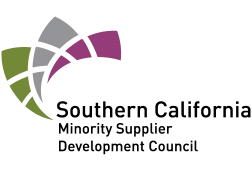
Dealing with difficult debtors can be one of the most challenging aspects of debt collection. Whether you’re a business owner or a debt collector, finding effective strategies to manage these situations is necessary for maintaining cash flow and ensuring the success of your collection efforts. In this article, we’ll explore practical tips for handling difficult debtors while highlighting the importance of following debt collection laws and maintaining professionalism throughout the process.
Also Read: Dealing with Unresponsive Debtors: When to Escalate Collection Efforts
TABLE OF CONTENTS
Understanding the Types of Difficult Debtors
Dealing with difficult debtors is a challenging aspect of debt collection that requires unique and careful strategies for different situations. Understanding the various types of challenging debtors can help you develop effective responses that are both professional and legally sound. Here’s a closer look at common debtor profiles and how to handle each one.
» The Non-responsive Debtor
Non-responsive debtors avoid communication and ignore calls and emails. To manage this type of debtor, persistence is key. Utilize various communication channels—like phone calls, emails, and even text messages—to reach them. Setting clear deadlines can also encourage a response.
» The Disputing Debtor
Disputing debtors challenge the validity of the debt or its terms. For these situations, it’s essential to provide clear documentation and explanations. Engage in professional negotiations to resolve disputes amicably, reinforcing the legitimacy of your claims.
» The Financially Distressed Debtor
Financially distressed debtors may be genuinely unable to pay due to unforeseen circumstances. Offering flexible payment plans or temporary relief can demonstrate empathy and keep the lines of communication open, leading to a better outcome for both parties.
» The Aggressive Debtor
Aggressive debtors can be confrontational or even threatening. In these cases, it’s vital to maintain professionalism. Document all interactions and know when to escalate the situation to ensure your safety and compliance with debt collection laws.
Also Read: Effective Debt Collection Strategies
Effective Communication Techniques
Communicating effectively with challenging debtors is essential for achieving positive outcomes. By maintaining a professional tone, demonstrating empathy, and setting clear expectations, you can foster constructive dialogue and improve cooperation. Here are some key techniques to help you navigate these conversations:
» Establishing a Professional Tone
Maintaining a calm, respectful, and firm demeanor is crucial when communicating with difficult debtors. This sets the tone for constructive conversations and helps to diffuse tension.
» Active Listening and Empathy
Understanding a debtor’s situation can lead to better outcomes. Practice active listening and respond appropriately to their concerns, showing that you genuinely care about resolving the issue.
» Setting Clear Expectations
Clearly outlining payment terms, deadlines, and the consequences of non-payment will help the debtor understand their obligations. This clarity can prevent misunderstandings and foster accountability.
Negotiation Strategies
Navigating negotiations with debtors can be challenging, but a thoughtful approach can lead to mutually beneficial outcomes. To improve your chances of success, it’s essential to balance firmness with flexibility. Here are some strategies to consider:
» Finding a Middle Ground
Negotiation is often about compromise. Be willing to find a middle ground that satisfies both parties while keeping your financial interests intact.
» Offering Flexible Payment Solutions
Customizing payment plans based on a debtor’s financial situation can help them fulfill their obligations without undue stress. This approach can lead to more successful collections over time.
» Using Incentives
Consider offering incentives, such as discounts for early payments or lump-sum settlements. This can motivate debtors to act quickly and fulfill their obligations.
Legal Considerations and Ethical Practices
Navigating debt collection requires a clear understanding of legal obligations and ethical standards. Staying compliant with regulations and maintaining professionalism are essential for avoiding potential pitfalls. Here are some key considerations to keep in mind:
» Understanding Debt Collection Laws
Familiarity with debt collection laws, such as the Fair Debt Collection Practices Act (FDCPA), is important. Knowing your rights and responsibilities can help you deal with complex situations while staying compliant.
» Avoiding Harassment and Unethical Tactics
It’s crucial to avoid harassment and unethical practices, as these can potentially harm your name and lead to legal repercussions. Always prioritize professionalism in your dealings.
» When to Involve Legal Action
Sometimes, it may be necessary to involve legal proceedings. Recognize when it’s time to escalate the situation and seek professional advice to ensure you’re taking appropriate steps.
Maintaining a Positive Relationship
It’s important to handle difficult debtors with care to keep business relationships intact. Staying respectful and following up regularly can help. Here are some tips:
» Preserving Business Relationships
Even when dealing with difficult debtors, it’s essential to preserve goodwill for potential future business engagements. Maintaining a respectful tone can help keep the door open.
» Follow-up and Customer Retention
Regular follow-ups can keep the communication lines open and reinforce your commitment to finding a resolution. This approach can enhance customer retention and foster positive relationships.
Utilizing Debt Collection Agencies
Sometimes, internal efforts aren’t enough to recover outstanding debts. This is when partnering with a debt collection agency can make a difference. Here’s how to determine when to seek help and choose the right agency:
» When to Consider a Collection Agency
If your internal efforts are proving unsuccessful, it may be time to enlist the help of a debt collection agency. Recognizing the signs that it’s time to pass the baton can save time and resources.
» Choosing the Right Agency
When selecting a debt collection agency, consider their reputation, expertise, and alignment with your business values. A Thousand Oaks collection agency, for example, may offer localized knowledge that can be beneficial.
Benefits of Professional Collection Services
Engaging a professional debt collection agency offers several advantages:
- Expertise and Experience:: Trained collectors understand effective strategies for different types of debtors, maximizing recovery rates.
- Efficiency: Agencies streamline the debt recovery process, speeding up communications and follow-ups.
- Familiarity with Debt Collection Laws: Professionals ensure compliance with regulations like the FDCPA, protecting your business from legal issues.
- Resource Allocation: Outsourcing collections allows your people to focus on important business functions, improving overall productivity.
- Improved Recovery Rates: Specialized skills and techniques lead to higher recovery rates.
- Professional Communication: Experienced collectors manage difficult conversations effectively, fostering cooperation.
- Access to Advanced Tools: Many agencies utilize software and data analytics to enhance collection strategies.
- Reputation Management:: Partnering with a reputable agency helps maintain your business’s positive image.
- Customized Strategies: Agencies tailor approaches based on your industry and debtor demographics for better results.
- Stress Reduction: Delegating collections can alleviate stress, allowing you to concentrate on business growth.
Also Read: 9 Questions to Ask Before Hiring a Debt Collection Agency
Conclusion
Handling difficult debtors is a complex but essential part of successful debt collection. By understanding the various types of debtors, employing effective communication techniques, and utilizing professional debt collection agencies, you can improve your chances of successful recovery. Always remember the importance of compliance with debt collection laws and ethical practices.
If you’re facing challenges with debt collection in Thousand Oaks, Coast to Coast Financial Services is here to help. Our experienced team understands the nuances of debt recovery and can provide tailored solutions for your needs. Contact us today at 805-506-8195 to discuss how we can assist you in your debt recovery efforts.





